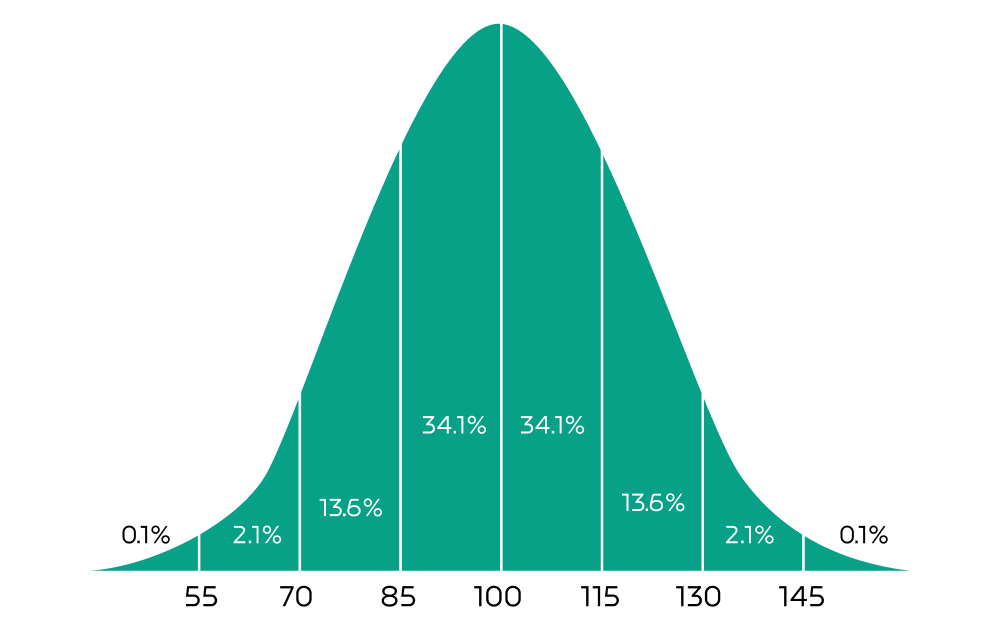- MAIN PAGE
- – elvtr magazine – REASONS WHY A HIGH IQ DOES NOT GUARANTEE HAPPINESS AND SUCCESS
REASONS WHY A HIGH IQ DOES NOT GUARANTEE HAPPINESS AND SUCCESS

Since childhood, others have told us that being smart is cool. It is believed that if you have a high level of intelligence, you can quickly become successful, rich, and famous. That's why we attend various courses and conferences, read books, and do exercises to upgrade the brain.
However, do all people with above-average IQ levels succeed? Why do authors portray geniuses like Virginia Woolf, Alan Turing and Sherlock Holmes as existential crisis victims in their movies and books? Why are many of them "lone stars" isolated from the world?
Why Intelligence and Achievements Are Not Directly Related
In the early 1900s, French authorities seriously engaged in education issues. They turned to psychologist Alfred Binet with a request to develop a system that would help identify weak learners before the start of their studies and provide them with specialised assistance. Thus scientists created the first test in history to determine the level of intelligence.
This test began growing in popularity. In 1926, the American psychologist Lewis Terman decided to use the test to analyse the life and future career of talented children. Terman visited many California high schools and selected 1,500 students with an IQ of 135 and above. The IQ of 80 of them exceeded 170 points.
For comparison: the average IQ of children is within the range of 90–110.
Terman called prodigies "termites" after three decades of observing how their lives were going. Every five years, he recorded illnesses and achievements and even monitored the development of family relations.
Some of the children achieved wealth and fame as adults. Almost 400 people from that group published more than 100 books and 1.5 thousand scientific articles. One "termite" became the chief investment analyst in a fund worth $40 million at 27. One woman built a successful acting career before the age of 30.
However, this group also included those who chose the "ordinary" professions of a policeman, a sailor or a driver. Six of them even ended up in jail for various crimes. These facts led Terman to conclude that intelligence and achievements are not directly related.
Scientists are constantly trying to answer why some people with high IQs become successful, and others don’t. Nobel Laureate in Economics James Heckman explained that erudition and intellectual abilities make up only 1-2% of career and financial success. Scientist believes that high achievements are more related to self-discipline, persistence, and diligence.
A good starting financial situation, connections, other human qualities, and talents that are not directly related to intelligence play an important role.
Why Talent Goes Hand-In-Hand with Dissatisfaction with Life
Besides, mental abilities do not always guarantee happiness to their owners. Lifetime divorce rates, alcoholism, and suicide among "Terman termites" corresponded to the national average. Thus, the scientist came to another conclusion that intelligence does not guarantee a happy life.
When in the 90s, almost 80-year-old "termites" had to recall their lives, most of them admitted they were unhappy with their successes. They had a feeling that they did not live up to the hopes that others put on them in their childhood.
Many talented children are familiar with this feeling. British Sufiya Yusof, who became a student of the Oxford Mathematics Department at 13, is one of the examples. Representatives of the academic world put great expectations on her, but the girl's fate followed a different script.
Sufiya disappeared after four years of study, right after the final exam. Her parents even filed a missing person report. In 2 weeks, the police found the girl in a hotel in Bournemouth (Great Britain), where she worked as a waitress. And at the age of 23, Sufiya tried herself as a sex worker.
Scientists often associate the dissatisfaction of prodigies with their own lives with the solid emotional pressure exerted by their parents from an early age.
Instead of a Conclusion: the "10 Thousand Hours" Method
People do not need outstanding talents or high intelligence for great achievements. The studies by the Carnegie Institute of Technology showed that 85% of financial success depends on the ability to build dialogue, negotiate and manage teams.
Suppose you were lucky enough to be born Blaise Pascal, who proved Euclid's 32nd theorem about the sum of the angles of a triangle at 8. However, remember that it is helpful to develop the brain, but it is not worth obsessing over mental abilities.
If you decide to "hack" your brain and move from the humanitarian field to development or learn Japanese, you can follow the "10 thousand hours" method. According to this method, it is impossible to achieve a high level of mastery without a specific scope of practice.
Psychologist Anders Erikson studied the careers of Berlin Music Academy students and found out what distinguished world-class soloists from average musicians. They all started learning to play an instrument at about five years old. However, world stars began with 2 hours of practice a week and gradually reached 30. During the entire period of study, they accumulated about 10,000 hours of training.
This figure is true not only for musicians but also for chess players, athletes, and other specialities. You can reach about 10,000 hours if you dedicate about 3 hours a day to the business for 10 years.
Psychologist Michael Gove, the author of the book Genius Explained, gives the example of Mozart. His early work, i.e. his first seven concerts, can hardly be called "outstanding". The earliest concerto, which is considered "great" (No. 9. K. 271), Mozart created at the age of 21. At that time, he had been composing music for ten years already.
*ELVTR is disrupting education by putting proven industry leaders in a virtual classroom with eager rising stars. ELVTR courses offer 100% instructor driven content designed to give you practical knowledge within a convenient time frame. Choose the right course for you!



